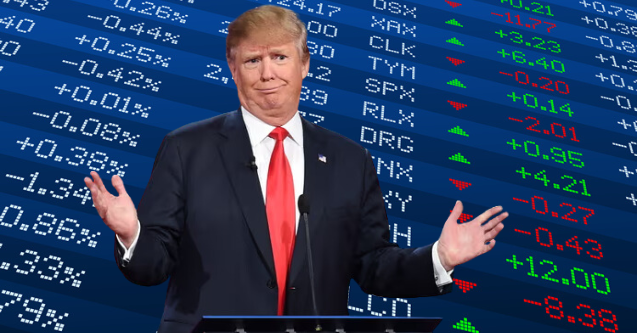Unsealed Filing Reveals the Stakes
Recent developments in Donald Trump’s legal saga have thrown a spotlight on the 2024 presidential race and raised questions about its ripple effects on the financial markets. Special Counsel Jack Smith’s newly unsealed filing, detailing Trump’s alleged attempts to overturn the 2020 election, outlines why Trump’s actions aren’t protected by presidential immunity. As more details emerge, both political analysts and investors are paying close attention to the case’s impact on market stability.
If you’d like to dive deeper, here is a link to the full 165-page filing.
How This Could Shape the Presidential Race
The release of the 165-page brief, made public by U.S. District Judge Tanya Chutkan, comes at a critical time for Trump’s campaign. Trump is currently the leading candidate for the Republican nomination, and the document reveals allegations that he coordinated with private co-conspirators to execute a plan to overturn the legitimate results in seven key states. These accusations could become a major focal point during the presidential debates, influencing voters’ perceptions and creating uncertainty within the GOP.
From a campaign perspective, Trump’s legal strategy seems poised to shape not only his own narrative but also that of the Republican Party. If Trump were to face legal consequences mid-campaign, it would lead to significant disruption within the party and potentially alter the current dynamics of the 2024 race.
Market Impact: Financial Uncertainty Ahead?
While political scandals have traditionally affected voter sentiment, Trump’s ongoing legal battles could impact financial markets in more profound ways. The volatility surrounding Trump’s campaign may increase uncertainty in sectors like defense, energy, and healthcare, depending on how investors perceive his policies and his chances of reclaiming the White House. If Trump’s legal troubles intensify, investors might see his potential policies as riskier, leading to shifts in investment strategies, particularly in politically sensitive sectors.
Furthermore, a convicted or heavily sanctioned candidate could disrupt the stock market in unforeseen ways. Trump’s policies have previously influenced markets—his stances on trade and foreign relations drove significant stock price movements during his presidency. As the legal proceedings unfold, sectors tied to regulatory oversight, such as banking and tech, could see increased volatility. Traders may begin to hedge their positions, expecting rapid shifts in policy sentiment, depending on how this case unfolds and how it affects Trump’s electability.
What Investors Should Watch
- GOP Stability: If Trump’s campaign falters due to legal setbacks, investors should monitor how other candidates fill the vacuum. A split GOP could signal broader uncertainty, affecting markets tied to domestic policy.
- Market Volatility: Any adverse legal outcomes for Trump could spark market sell-offs in sectors closely linked to his policies. His legal predicament might also pressure emerging markets sensitive to U.S. political shifts.
- Policy Impact: If Trump’s campaign rhetoric shifts in response to legal pressure, anticipate changes in market expectations around infrastructure, energy policy, and tech regulations.
Financial Strategies for a Turbulent 2024
For individual investors, these developments suggest a need for cautious optimism. Diversifying into sectors less vulnerable to political swings, such as consumer staples or healthcare, may provide a buffer against campaign-induced volatility. Likewise, keeping an eye on key court dates and potential shifts in polling data could offer indicators of how markets will react in the short term.
Final Thoughts
As the 2024 election season heats up, Trump’s legal battle will likely be a defining issue, shaping both the political landscape and the stock market. For investors and financial professionals, understanding the interplay between political risk and market movements will be critical in navigating this unprecedented campaign.





